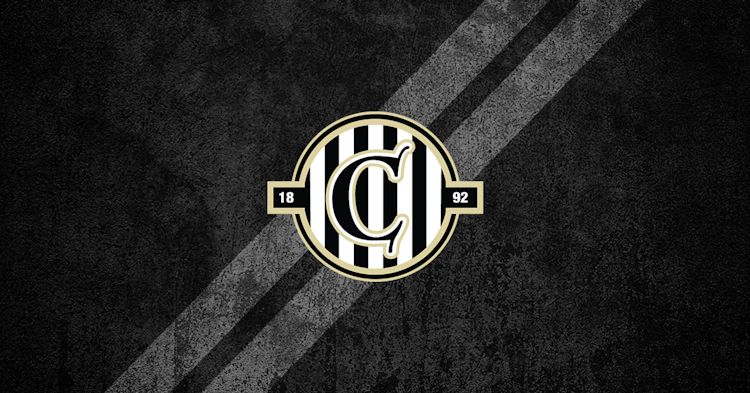AFL FINALS FEATURE: An epic Collingwood-West Coast Rivalry Adds Another Breathless Instalment
Last updated: Oct 7, 2020, 4:30AM | Published: Oct 6, 2020, 11:35PM
And, exhale.
These Collingwood-West Coast epics, immense demonstrations of football, have ascended into something that is not very football at all, and more like a nervous breakdown where bodies chase each other and collide. They are games that make the chest feel uncomfortably alive.
Saturday's elimination final was the seventh time the Pies and Eagles have met since the start of 2018 and each game has been significant in its own way, always acting as an apt marker of where both teams stood. West Coast's 66-point demolition of Collingwood this year in round 8 was its announcement to the competition that it was back. That was a day of impossible, ruthless efficiency, with the Eagles playing in an ecstatic dream state, where everything was suddenly perfect.
The elimination final was much scrappier and on Collingwood's terms.
Over the past three years the Pies have slowly transitioned from lightning-quick free-scoring powerhouse to students of painful, physical struggle, creating games where everything has to be earned. Collingwood are less frightening than they were in 2018 - if only because they can't kill you as quickly - but they're more imposing now, and Saturday felt like vindication for the journey.
RELATED: Are We Completely Sure Collingwood Can’t Win The Premiership?
In playing West Coast in Perth, there is always the fear that at any moment an avalanche is coming and then you will be gone. The Eagles move the ball so quickly and precisely, find space at stoppages so easily, and have Jack Darling and Josh Kennedy waiting in attack so ominously, that goals have a habit of mounting in rapid succession. Few leads feel safe because all it takes is one goal to send the ball back to Nic Naitanui.
Early on, Collingwood just needed to keep touch, and Mason Cox's re-animation of September 2018 gave them the buffer that made sure they would stay in the game. With the spasms of the lights show before the bounce, games at Optus Stadium already have an element of the surreal, and Cox's devastating three-goals-in-five-minutes blitz took things toward the absurd. He is a player who drifts through seasons being sometimes useful, sometimes not, and then against the best teams on the biggest stage becomes a defining actor.
Most games Collingwood seem to steal one goal through a carefully lofted short pass into clear leading space to Cox, letting his height do the rest. The first goal against West Coast came like that, but the second and third were more impressive from Cox, as he deftly initiated contact in the contest at the perfect moment with Jeremy McGovern and then Tom Barrass to get them off balance and unable to rise to disrupt his height.
The Eagles came back, as they were always going to, and did it through dominance at centre bounces. At each quarter break Collingwood had a small edge, but from the bounce to start the second, third and final terms, the Eagles won clean clearances that led directly to goals. As a result, every quarter immediately felt ominous. But the Eagles were stuck relying on these brilliant, terrifying flourishes (with five of their 11 goals coming from centre bounces), while Collingwood had the slightly better of general play, helped by a +11 mark in contested ball. Most importantly, Collingwood took their chances. They kicked 12.4, several of the 12 highly improbable, and kicked goals from 30% of their entries. In the end, that was the difference.
RELATED: Does Footy Really Change When Finals Start?
From the opening moments the game was played at a frenetic pace with bodies trapped in a pinball machine of pressure and energy. The pace of the game helped Collingwood, who often need chaos to create offence, and struggle in slow build-up play into a forward line that has never really clicked. The Pies exited 50 with speed and dare and spread from the contest better than West Coast, who weren't allowed to play their kick-mark game nearly as comfortably as they were in round eight. Often the Eagles' chains would connect, those scything inside-out passages from defence with the ball travelling in sharp angles and never hitting the ground, but then be ruined in its final move, with an act of timely Collingwood desperation in defence killing the moment.
A marvellous game had plenty of madness. In the third quarter, Darcy Cameron managed to concede an awful turnover at half-back, give away a free kick to Josh Kennedy leading to a shot at goal, and take a towering contested mark in the centre square, all in the space of little over a minute. Outside of two important late link-up marks and a magnificent tackle on Jack Darling by the collar, Brodie Grundy was almost non-existent in the game, while Naitanui was the game's best player. Liam Ryan vs. Brayden Maynard was the best game within the match, with Ryan's mock showing of the ball to Maynard before a West Coast goal particularly wonderful.
At three quarter time, Collingwood looked to have a hint of breathing space, but Ryan took that away immediately following the centre bounce to start the fourth, a sharp reminder that the Eagles, and the game itself, would not just fade away. When Oscar Allengoaled to put West Coast back in front, the game looked set for the path that most had always expected, with a gallant Collingwood about to be overrun by the home side.
But Josh Kennedy missed twice and the Eagles weren't able to end the game while they had control. A three-goal flurry against play gave Collingwood the gap they would need - an unbelievable left-foot goal on the run from Mihocek started it, where his ball drop was as though he were hastily throwing away a hot chicken tender he'd picked up too soon off the oven tray, before a booming Jordan De Goey snap through an impossible angle, and a contested Mihocek mark and clean finish in the pocket made the margin 13 points.
The game, the opponent, and this rivalry dictated that there had to be more moments, though, and the Eagles came back again.
The Pies would have to protect their 76-75 lead for an excruciatingly long 77 seconds. When Adam Treloar kicked deep to the Collingwood goal line it looked like they would do so, but Treloar's stray kick took a Stephen Milne type bounce over the head of Will Hoskin-Elliott into the hands of a waiting Jeremy McGovern. An attacking Eagles entry and desperation inside West Coast's 50 looked set to determine the game, but all that was upended by Taylor Adams' awareness to break off his defensive run and quickly double back, reading Tim Kelly's handball and smothering Tom Cole's kick to end the match. It was fitting that Adams, who amid the mayhem of injuries and suspensions and absences for Treloar, De Goey, Scott Pendlebury, Steele Sidebottom and Jeremy Howe has been Collingwood's best player this season, would be the one to win the game for them.
RELATED: Charting The AFL Premiership Clock: How Far Is Your Club From Its Next Flag?
The Sydney-West Coast rivalry of the mid-2000s and the Geelong-Hawthorn rivalry that followed needed a successor, and right now Collingwood-West Coast, while less patently absurd than the others, is the closest thing. Three finals in three years have been played at a remarkably high standard, all with deathly tense finishes. In between was last year's 78-77 Collingwood win in Perth, the Magpies' gutsiest home and away season win in years, from 16 points down at three quarter time as huge underdogs on the road, to revive their season.
This isn't new for Collingwood-West Coast, a rivalry defined by agonisingly close finishes, dating back to the drawn qualifying final in 1990 and West Coast's two-point qualifying final win in 1994. Bridging the gap from then to now was the epic 2007 semi-final, where the Eagles, in Nathan Buckley's last ever win as a player, pushed Collingwood into extra-time missing Chris Judd, Ben Cousins and Daniel Kerr, before noted big-game star Chris Bryan sealed the game for the Pies at Subiaco.
The final minute of regulation in that final was football at its most breathless. The score was tied and the ball was trapped in Collingwood's attacking 50, with mania and force around the ball melting into exhaustion, with legs so tired that the ball could not be poked more than a few metres, every player by the end of it looking as desperate for a whistle as they were for possession.
Saturday night had that level of breathlessness at times, with two champion teams - a premier and the team it narrowly denied - intent on their strange year of stoppages and sacrifices continuing for another week at least.
This West Coast season feels like it's ended too early, though everything has been difficult since they flew back to Queensland to play Richmond. Injuries ruined them on that second stint up north and while everyone bar Elliot Yeocame back, against Collingwood they looked like a team that was just a few beats off, caught spending a little too much time trying to remember how to be dominant.
The Eagles lose no respect with this loss or this season. Their mettle, if anyone ever wrongly doubted it, was proven again in the late win over St. Kilda, a game they had no business taking a result from.
Collingwood, meanwhile, march on, set for a Geelong team who they’ve handled in the two most recent meetings. The Cats, on balance, are likely the better team by a slither, but their methodical build-up play has played right into Collingwood’s hands in the past, with Geelong unable to break down the barriers, while Collingwood’s pace on the counter has burned them. Last time they met, Collingwood was +15 in inside 50 and +20 in contested possessions, and the time before that Geelong was +7 in inside 50s and +21 in contested possessions - both times Collingwood controlled the game and won. The Cats will need new ideas and more adventure in how they move the ball.
If Collingwood lose, the memory of this win over West Coast will fade a little, like the win in 2007 in Perth, like Jack Anthony’s kick in 2009 to beat Adelaide, like the 2011 preliminary final win over Hawthorn– all classics that prefaced disaster. But those games, despite their ultimate footnote status in record books, are never forgotten, and always rest with fans as warm reminders that things do go well sometimes in sport, and not everything is gut-wrenching disappointment.
In a heartbeat, all Collingwood fans would trade the finals wins over West Coast in 2007, 2012 and on Saturday for Dom Sheed hooking his kick in 2018 – unless, of course, this Collingwood side has three more wins in it.
Until finding that out, Collingwood fans will have Saturday to cling to – not quite a Grand Final, but a game befitting of the stage.
Did you enjoy this article? Join our free mailing list to get the best content delivered straight to your inbox, or join the conversation by leaving a comment below or on the Stats Insider Twitter or Facebook page.



